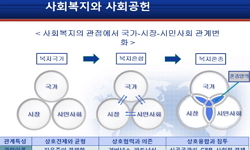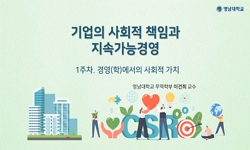Recently, the COVID-19 pandemic posed unforeseen challenges for individuals with intellectual and developmental disabilities (IDD), exacerbating their pre-existing hardship. Although micro enterprises for families with individuals with IDD have rece...
http://chineseinput.net/에서 pinyin(병음)방식으로 중국어를 변환할 수 있습니다.
변환된 중국어를 복사하여 사용하시면 됩니다.
- 中文 을 입력하시려면 zhongwen을 입력하시고 space를누르시면됩니다.
- 北京 을 입력하시려면 beijing을 입력하시고 space를 누르시면 됩니다.

A Case Study on the Implications of Family-Based Micro Enterprise with Adult-Children with Intellectual and Developmental Disabilities in South Korea
한글로보기https://www.riss.kr/link?id=A108926094
- 저자
- 발행기관
- 학술지명
- 권호사항
-
발행연도
2023
-
작성언어
English
- 주제어
-
등재정보
KCI등재
-
자료형태
학술저널
-
수록면
1-25(25쪽)
- DOI식별코드
- 제공처
-
0
상세조회 -
0
다운로드
부가정보
다국어 초록 (Multilingual Abstract)
Recently, the COVID-19 pandemic posed unforeseen challenges for individuals with intellectual and developmental disabilities (IDD), exacerbating their pre-existing hardship. Although micro enterprises for families with individuals with IDD have received attention in more developed countries as a means to enhance autonomy and independence, little is known about the personal implications for people with IDD and their family members in less developed societies. This study explored the experiences of families with adult children who have IDD and have initiated micro enterprises in South Korea. A series of semi-structured interviews with three co-founders who started a dried-rice workshop near Seoul were conducted during late November 2019 to January 2020. This study illustrates how family-based startups can offer meaningful employment opportunities for adult children with IDD and reduce burden of constant caregiving from their aging family members. The study demonstrated the initial objectives, business selection, success factors, and challenges faced by these families in the Korean context. It is crucial for scholars and practitioners to acknowledge the importance of both seeking job opportunities for adult children with IDD and maintaining strong family connections. Furthermore, gaining firsthand knowledge on these individuals’ unique competencies is vital to effectively tailor employment conditions to suit their specific needs.
동일학술지(권/호) 다른 논문
-
Turkish Media’s Role in Armenian-Turkish Relations
- 연세대학교(미래캠퍼스) 빈곤문제국제개발연구원
- Najaryan Syuzan
- 2023
- KCI등재
-
농촌복지를 위한 리더십 특성 연구: 원주시 신림면 용암1리 사례를 중심으로
- 연세대학교(미래캠퍼스) 빈곤문제국제개발연구원
- 문병선
- 2023
- KCI등재
-
공정무역 생산자 단체의 지속가능한 발전을 위한 제도 생성 과정: 인도 케랄라 PDS 사례
- 연세대학교(미래캠퍼스) 빈곤문제국제개발연구원
- 김선화
- 2023
- KCI등재
-
Alternative Occupational Safety and Health Education Case Study for Vocational High School Trainees
- 연세대학교(미래캠퍼스) 빈곤문제국제개발연구원
- 이영주
- 2023
- KCI등재




 DBpia
DBpia






